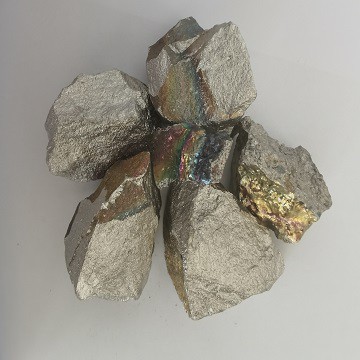Ferroalloys are essential materials used in the production of steel and other alloys. They are composed of iron (Fe) and one or more additional chemical elements such as silicon, manganese, chromium, or magnesium. These elements are introduced into the steelmaking process to improve the physical and chemical properties of the final product.
1. Major Types of Ferroalloys
The most commonly used ferroalloys include:
Ferrosilicon (FeSi): Used as a deoxidizer and alloying element in steelmaking. It enhances strength, hardness, and corrosion resistance.
Ferrochrome (FeCr): Adds hardness and wear resistance to steel, especially in stainless steel production.
Ferromanganese (FeMn): Serves as a deoxidizer and improves the toughness and hardness of steel.
Ferro Silicon Magnesium (FeSiMg): Widely used in ductile iron production to promote spheroidization of graphite.
Ferrovanadium, Ferrotitanium, and others: Added in smaller quantities to impart specific properties like increased strength or resistance to high temperatures.
2. Applications
Ferroalloys are primarily used in:
Steel Industry: Over 85% of ferroalloys are used in steelmaking to improve strength, ductility, and resistance to wear and corrosion.
Foundries: For the production of cast iron and ductile iron.
Welding Electrodes, Superalloys, and Batteries: Specialized uses of certain ferroalloys in niche industries.
3. Global Production and Trade
China, India, Russia, South Africa, and Brazil are major producers of ferroalloys. Due to increasing demand in infrastructure and automotive sectors, ferroalloy consumption continues to grow globally. China is the largest consumer and exporter of many ferroalloys.
4. Key Industry Trends
Shift toward clean and energy-efficient production methods
Rising demand for stainless steel and special steel
Increased use of low-carbon and ultra-low-carbon ferroalloys
Focus on recycling and sustainable sourcing of raw materials
5. Challenges
Volatility in raw material prices (e.g., manganese ore, chrome ore)
Environmental regulations and carbon emission targets
Logistics disruptions and trade barriers
Conclusion
Ferroalloys play a vital role in modern metallurgy and industrial development. As global steel production continues to expand, the ferroalloy industry will remain a critical part of the supply chain, with increasing focus on quality, sustainability, and innovation.

